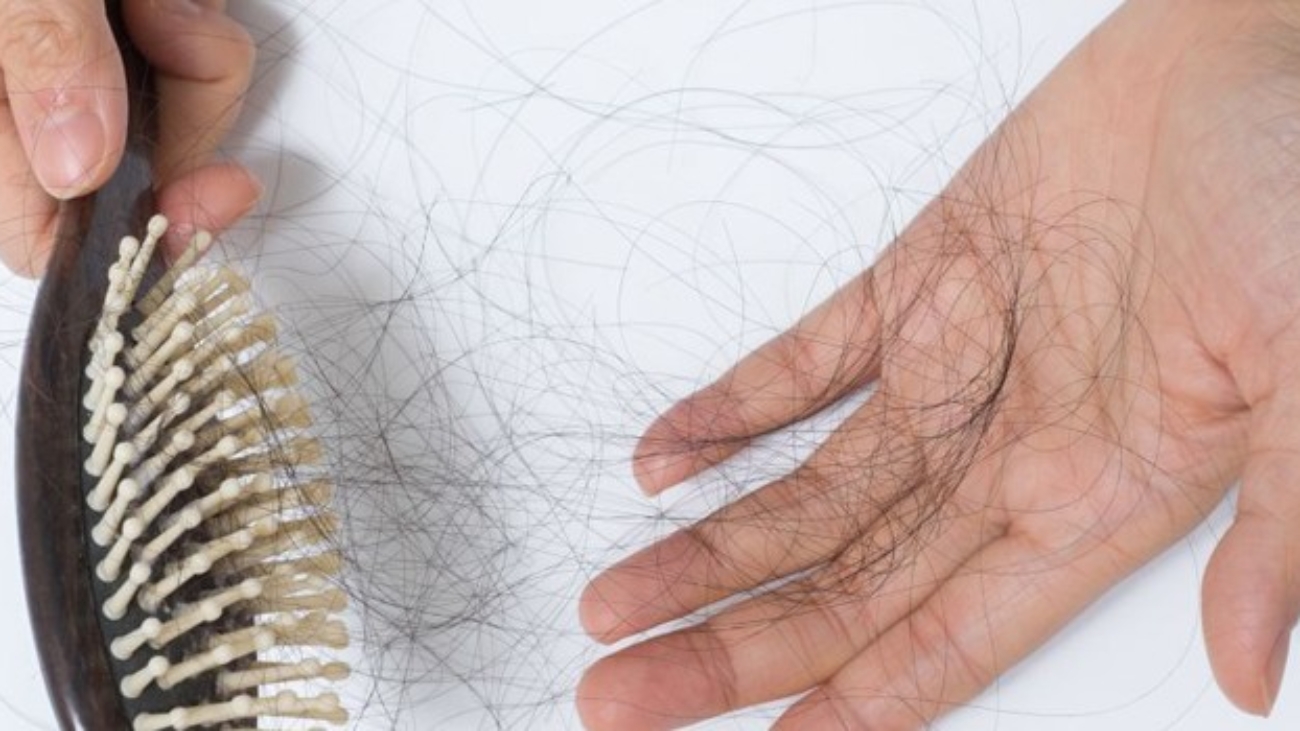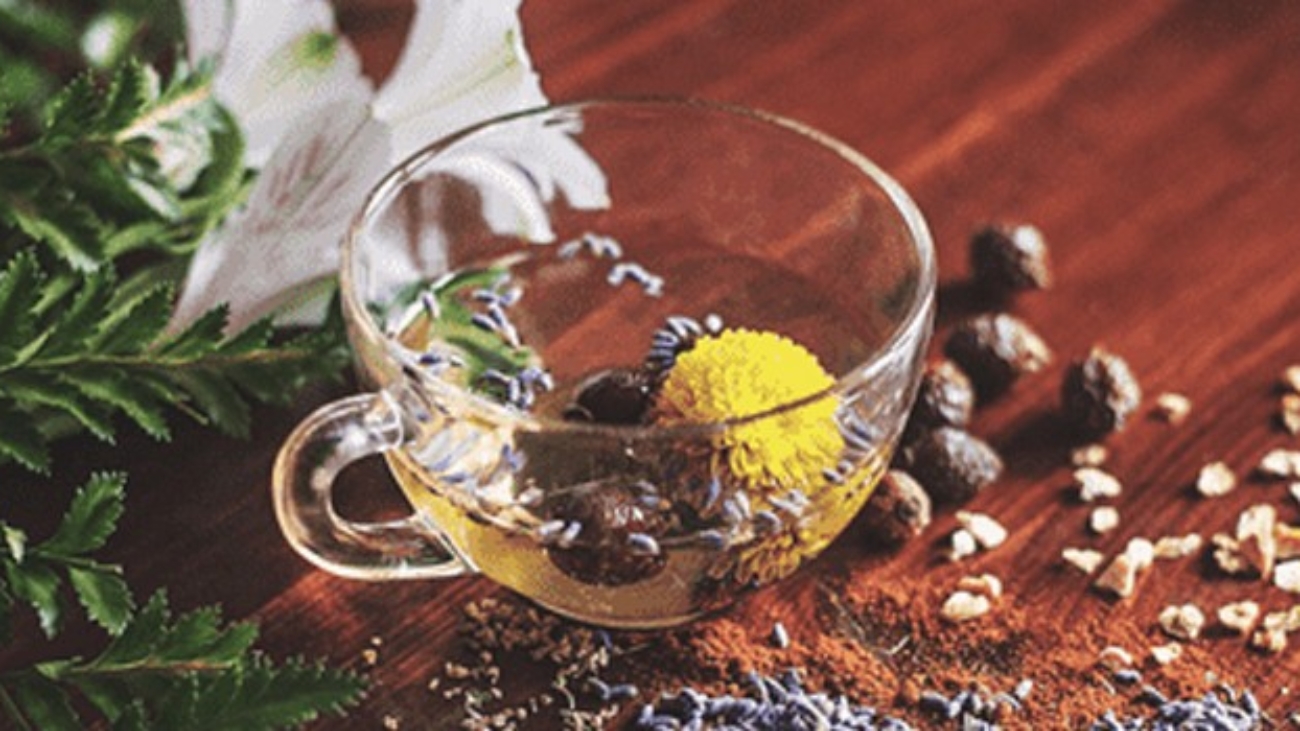How To Build Your Own Skincare Routine
Great skin is a result of good skincare habits and a healthy lifestyle.
While it’s essential to follow a good skincare routine, it isn’t complete in itself. The 5,000 year-old-science of Ayurveda emphasizes the mantra ‘True beauty comes from within.
For this reason, the Ayurvedic skincare routine focuses on balancing the whole body and supporting the digestive system with a healthy diet while treating each individual according to her specific dosha.
Sounds difficult? It isn’t.
Once you become intuitively tuned to understand what your skin needs, you’ll be able to approach skincare and beauty in a holistic manner. Below, we’ve broken down the key elements of chalking out the perfect skincare routine for yourself.
Let’s get started.
THE BASICS OF SKINCARE
Your skincare routine essentially consists of these three basic steps.
Cleansing – Removing impurities from the skin
Toning – Balancing the skin
Moisturizing – Hydrating the skin
The main objective of following a skincare routine is simply to reveal your best natural skin and a glowing complexion.
Following this basic CTM routine helps you understand how your skin’s changing with time. Sometimes, you might need to tweak the products that you’re using based on how your skin is responding to the current weather conditions.
Think of these steps as a way to revisit your skin twice a day to establish a relationship with it.
At Ayunature Care Clinic, we believe natural and organic products are the best skincare treatments that we can give to our skin. Regular exfoliation combined with a regime of CTM (Cleansing, Toning & Moisturizing) can take you a long way in your skincare journey.
PATIENCE IS THE KEY TO A GREAT SKIN
How many times have you decided to be regular with your CTM only to give up in a week or so? Don’t worry, we’ve all been there.
But remember, all good things take time. There’s no magical product that can restore your skin’s glow and health quickly.
The entire point of creating a skincare regime for yourself is to stick to it long enough to see results and changes. So, don’t forget all about taking care of your skin until you’ve got an important event to attend.
Because of so many options available in the market, it’s important to remember a few things while choosing products for your skin.
A lot of skincare brands promise instant solutions to your problems. Harsh chemicals used in these instant solutions do more harm than good in the longer run.
Organic and natural skin care products are the most gentle on the skin. Choose products with minimum possible side effects and no chemicals.
Results only come with consistent use. Use a product regularly for at least six weeks to observe changes.
As an exception, discontinue the product if you experience skin breakouts, rashes or irritation.
As a conscious customer, opt for organic and vegan products that are not tested on animals and are cruelty-free. Products that cause harm to the planet are not going to be good for your skin, either.
Ayurvedic Remedies for Hair Loss and Regrowth
Your crowning glory can be a bane sometimes, especially when it starts thinning. Spotting wispy strands and seeing clutches of tangled hair in brushes can give us sleepless nights. Experts say relentless hair fall can indeed be extremely distressing for us and can have a grave psychological impact on our overall well-being. “Shedding hair can be one of the major reasons for dwindling self-confidence. Our current hectic lifestyle, pollution, and adulterated hair care products are primarily to blame,” says skin and hair expert Dr Renuka Siddhapura, founder, Ayunature Care Clinic, a natural and Ayurvedic skin and hair care brand.
While the market is indeed awash with hair fall control products, not all can guarantee foolproof protection against hair loss. Besides, experts say, one should be wary of harmful chemicals in such products that can further damage our hair. “It is vital to get rid of those chemical-leached hair products,” says Renuka.
So what can be a safe alternative to chemical-laden anti-hair fall products? Well, one can certainly rely on Ayurveda to fight against hair loss. The world’s oldest medical system offers a plethora of healing remedies and also prescribes a lifestyle and health routine to control hair fall. Basically, Ayurveda’s aim is to not only cure ailments but also prevent illnesses.
- All about the doshas
- Ayurveda-prescribed lifestyle routines
- Ayurvedic remedies to hair fall
- Natural oils for hair fall
How to take care of your hair fall by Ayurveda?
- Are you suffering from hair fall?
- Are you suffering from dandruff since long time?
- Have you started baldness?
- Have you any hair problems?
The global hair care industry today is a multibillion-dollar one and understandably for a good reason. As one of the most important elements determining someone’s physical appearance, hair is a feature that everyone wants the best of. Few things enhance one’s beauty as much as a full head of thick, lustrous hair, and men and women around the world constantly seek the best products to enhance the appearance and health of their hair.
However, owing to various causes such as a poor diet, environmental factors, hormonal imbalance or stress, we often end up suffering from conditions like hair fall, premature greying, or thinning. Moreover, many commercial hair care products use a lot of chemicals that damage not only the hair but also, potentially, the body’s nervous and endocrine systems. And the products we buy to treat our damaged hair often have only a superficial effect and leave the underlying causes unanswered.
This is where the Ayurvedic treatment process is beneficial to combat hair fall and hair loss. Ayurveda intrinsically involves a holistic approach to healing. Not only are the treatments and products used 100% natural, but they are also designed to address the root cause of the problem – which often originates in underlying problems deep within your body. This holds true whether you choose a topical solution for hair damage or a more general approach to heal your body.
One of the fundamental principles of Ayurveda is that the health of the body’s digestive fire (Agni) determines the type of nourishment that the body’s tissues and organs receive. This, in turn, depends mainly on the kind of food we eat and the quality of the environment we are living in. Moreover, given how closely interlinked our bodily systems and tissues are, hair health can also depend on factors apart from digestive strength, including stress levels, hereditary factors, personality traits and the overall quality of life. This is why Ayurvedic hair care focuses largely on rejuvenation (Rasayana), which involves deeply nourishing the body at a cellular level to promote healing and regeneration.
The 5000-year-old practices of Ayurveda have been tested over time and hold a deep relevance even today. There are many excellent ayurvedic medicines for hair fall and hair damage that address the internal root causes and help you acquire the thick, lustrous hair you seek. This article provides you with an introduction to the different types of Ayurvedic hair remedies and helps you select the perfect hair care option for yourself.
Which vitamins boost your immune system?
The old saying, “An apple a day can keep the doctor away,” may have truth behind it after all. Eating nourishing foods rich in certain vitamins can help your immune system fight off illness.
We talked to Ayurveda expert Dr. Renuka Siddhapura, for a closer look at these vitamins, what foods you can find them in and how they can help keep you healthy. Here’s what she had to say:
– Vitamin C is one of the biggest immune system boosters of all. In fact, a lack of vitamin C can even make you more prone to getting sick. Foods rich in vitamin C include oranges, grapefruits, tangerines, strawberries, bell peppers, spinach, kale, and broccoli. Daily intake of vitamin C is essential for good health because your body doesn’t produce or store it. The good news is that vitamin C is in so many foods that most people don’t need to take a vitamin C supplement unless a doctor advises it.
– Vitamin B6 is vital to supporting biochemical reactions in the immune system. Vitamin B6-rich foods include chicken and cold-water fish such as salmon and tuna. Vitamin B6 also is found in green vegetables and in chickpeas, which is the main ingredient in hummus.
– Vitamin E is a powerful antioxidant that helps the body fight off infection. Foods rich in vitamin E include nuts, seeds, and spinach.
How to boost your immunity?
A simple rule can help you when choosing fruits and vegetables at the grocery store or farmers market: The more colorful the fruits and vegetables are, the better.
“Try to eat a wide variety of foods, and aim to eat fruit and vegetables from every color of the rainbow,” Dr. Renuka Siddhapura says. “Your plate will be more enticing to look at, and you will ensure that you’re getting as many health-boosting vitamins and nutrients as possible.” It’s also important to know that you build a strong immune system by maintaining healthy eating habits over time. You can’t eat four oranges at breakfast and expect to be protected that day against catching a cold.
How to Regrow Your Hair with Ayurveda?
Can Ayurveda Regrow Hair?
The Ayurvedic system is based on the concept of keeping the three dosha levels – Vata, Pitta, and Kapha – in balance. According to Ayurveda, hair fall occurs when there is an imbalance in these doshas, which form your innate Prakriti. Thus, in order to reverse hair loss, you need to work on balancing your Ayurvedic doshas.
Factors Causing Hair Loss As Per Ayurveda:
- Poor Nutrition
- Stress & Anxiety
- Poor Lifestyle
Ayurvedic Ways To Regrow Your Hair Naturally:
- Ayurvedic Therapies
- Shirodhara
- Shiro Abhyanga
- Shiro Lepa
- Nasya
- Regular Massaging With Ayurvedic Hair Oils
- Regular Hair Cleansing With Ayurvedic Herbs
- Nutritious And Dosha Balancing Diet
- Cucumbers
- Pumpkin
- Leafy Vegetables
- Yogurt
- Peppermint
- Coriander
- Ayurvedic Medicines
- Stress-Free Lifestyle
- Exercise Regularly
- Sleep Sufficiently
How to treat hair fall in summer with Ayurveda
Hair fall is the most common concern seen in men and women in India. Hair fall can lead to alopecia or baldness or even thinning of hair.
Sebaceous is a hair follicle that is attached to our oil glands. Glands produce fatty sebum that nourishes our hair. There are cases when the follicle does not get nourishment. This leads to hair fall. Summer is the most common season where people experience hair fall. This is because of the heat and the sweat that gets accumulated on the scalp. This attracts dirt and dust to the hair which weakens the hair follicles.
Common symptoms of hair fall are:
- Gradual thinning of the hair
- Patchy bald spots
- Loosening of hair
- The slow growth of hair strands
- Excessive shedding of hair
- A receding hairline
Factors leading to hair fall also depends on age, lifestyle and gender.
- Stress
- Hormonal imbalances
- Pregnancy
- Smoking
- Drugs and Antibiotics
- Family history or heredity
- Styling and applying heat
- Vitamin D deficiency
- Medical conditions
- Radiations
- Poor Diet
Ayurveda lends a holistic approach to the human body. Ayurvedic treatments and practices have been integrated keeping in mind the overall wellness of the body.
The three basic ideas for hair according to Ayurveda are Amla, Shikakai, and Brahmi.
Ayurvedic Treatment for hair fall:
Takradhara: This is a medicated buttermilk cooked with soothing medicines which are poured on the hair and scalp region. This helps removes excessive heat in the body thereby preventing hair fall.
Thalapothichill: This is an ideal mask that is mainly prepared in summers. It helps with hair growth and nourishment.
Shirodhara: A medicated oil that is prepared for the scalp and head to nourish dry pores and also help combat hair thinning.
Here are a few tips to prevent hair fall:
- Oiling and washing hair regularly
- Combing your hair 3-4 times in a day
- Having a balanced diet
- Having sufficient Vitamin D levels
- Getting an adequate amount of sleep
- Do not use styling products
Joint care during the winter season
For people suffering from psoriasis, the symptoms may worsen as the Winter season kicks in. This is primarily due to little or no exposure to UV rays from the sun that prevent the growth of skin cells responsible for causing psoriasis. The lack of humidity during winter also results in dryness-related psoriasis symptoms.
Ayurvedic treatments, like the ones listed below, can greatly help alleviate joint-pain:
- Lepa – Involves the application of external herbal pastes on the affected region
- Abhyanga – An age-old practice that involves massaging the joints with medicinal oil
- Parisheka – Showering or sprinkling herbal/medicinal liquids/milk over the pain areas
- Avagahana – Avagahana involves dipping parts or joints in medicinal liquids or milk
- Upanaha – The process of placing a heated moist herbal mass on the affected area
Aligning yourself to the rhythms of nature is the key to living a balanced life and maintaining healthy levels of Vata and Kapha. Both diet and lifestyle play an important role in helping you achieve this. Having a personalized routine goes a long way in contributing to the vitality and positivity of your being. In the end, attuning your body and mind to nature’s cycle is the key goal of Ayurveda which can help you lead a mindful and healthy life.
Yoga for the Cold Season
In the winter season, things slow down which creates an environment of heaviness and stagnation. To overcome this feeling, it’s important to provide stimulation to the body. One of the healthy tips of winter to provide stimulation is yoga.
Some of the yoga tips to survive the cold season are:
- Practice in the morning and evening – Different parts of the day have different energies when the Kapha dosha is dominant. When the energy is high, you feel active, while when the energy is lower, you feel slower. It’s ideal to practice when the energy is on a higher side. The morning time from 6 AM to 10 AM and evening time from 6 pm to 10 pm is the most conducive for practicing yoga.
- Focus on the heat-building movements – Many of you may feel towards relaxed movements since it’s winter, however, it’s important to balance out the cold weather with warm heat-producing movements. You can start your practice with a few Surya Namaskar and move on to a Vinyasa.
- Wear bright clothes during practice – Colour therapy actually works. It’s easy to let the winter blues take over to make you feel dark and down. This is where bright colors help to lift your mood up. Some of the colors you can try out our reds, oranges, purples, and yellows.
- Focus on leg-heavy postures – Incorporating more squats, lunges, and warrior poses can help you to increase the strength in your legs which adds to our mental wellbeing. More power in your legs means that you feel more positive and emotionally stable.
- Play some music while you practice – A great way to provide steady stimulation while you practice is by keeping some uplifting tunes in the background. It can really help you get you in the mindset to work it out by overcoming your laziness.
Some of the yoga movements that you can practice during winter are:
- Supta Baddha Konasana or Reclining Bound Angle Pose
- Balasana or Child’s Pose
- Sucirandhrasana or Eye of the Needle Pose
- Anjaneyasana or Low Lunge
- Prasarita Padottanasana or Wide-Legged Forward Bend
- Eka Pada Rajakapotasana or Pigeon Pose
Winter Exercise
One of the best Ayurvedic tips for winter you can get for optimal mental and physical health is exercise. A slow and strengthening exercise regime will help to balance out the Vata in the atmosphere. On the other hand, to balance out the Kapha, you can go for a more physically involving and longer exercise regime. It’s important to respond to the signals of the body. If you feel exhausted, then you can go for Vata-pacifying exercises such as walking or gentle yoga, whereas if you’re feeling lazy and heavy, then it’s best to go for a more vigorous regime such as jogging or skiing.
Winter Health Tips from Ayurveda
Although winter is about slowing down and adopting a gradual pace of life, it’s important to stray away from a sense of purposelessness and melancholy. This is the time to indulge in meaningful relationships, socialize in a balanced way and keep time for quiet reflection.
Inducing certain predictability in your routine will go a long way in keeping the Vata in balance and boost the Kapha. You can divide the different portions of the day into a consistent routine and some spontaneous activity. For example, you can start your day with a regular morning routine such as yoga, spend the afternoons outside dressed in bright and vibrant coloured clothes that cover your body properly and protect you from the cold, engage in some uplifting evening activity and retire early to sleep.
If you’re wondering about how to stay healthy in winter, then you should know that lifestyle is an important factor that affects your health apart from food. Disorderly habits such as staying up or working late at night, having meals at irregular times, and causing stress and fatigue to the body can negatively affect the functioning of the immune system. Keeping the body functioning and your daily activities in a smooth rhythm will help the immune system to be in perfect shape. It’s natural for the body to demand more sleep in winter since the days are shorter and the nights are longer. Moreover, the winter season is also a time to be in a resting period, so it’s ideal to reduce your activities to a bare minimum and provide more nourishment to the body.










